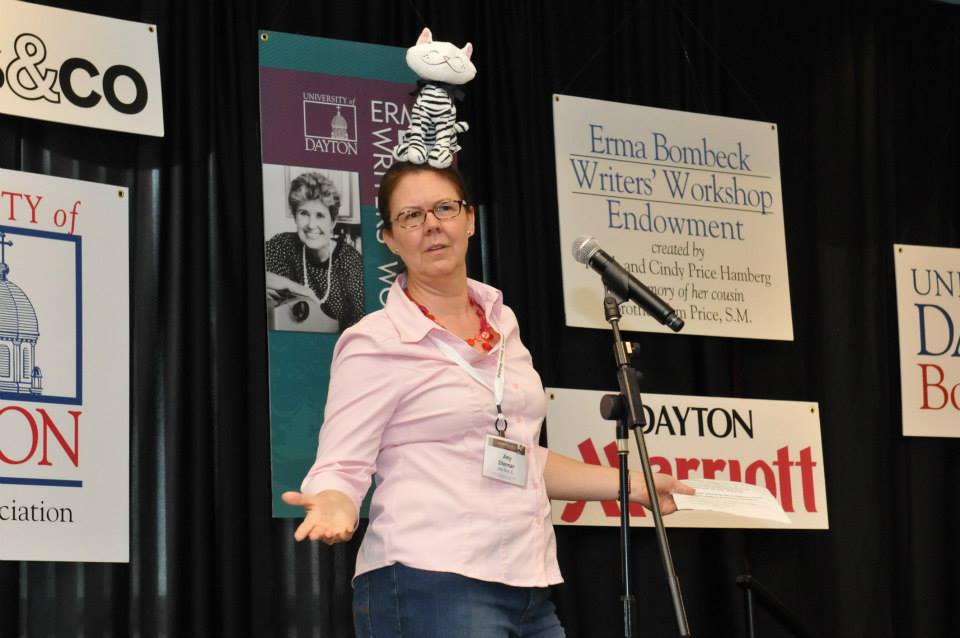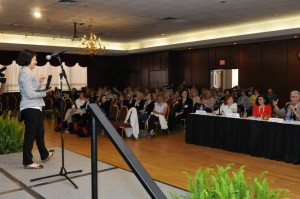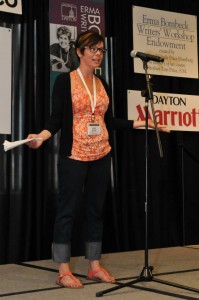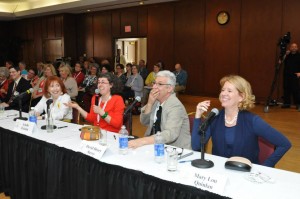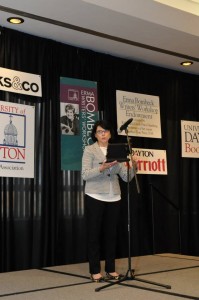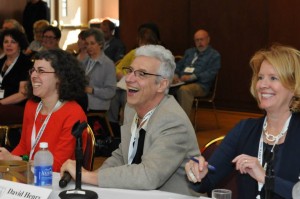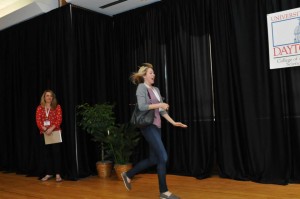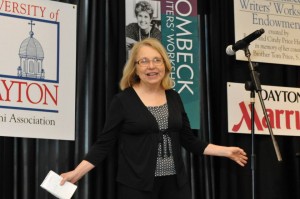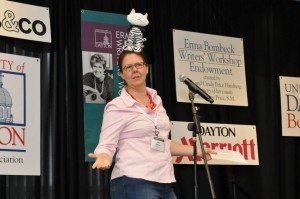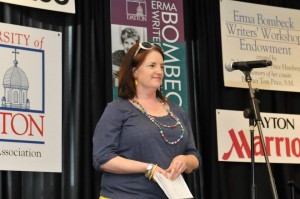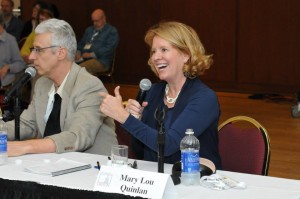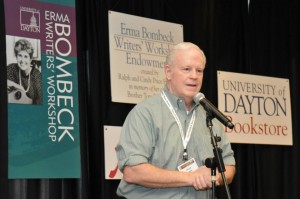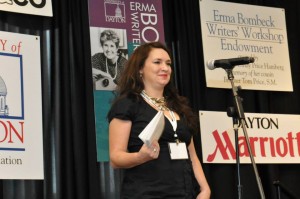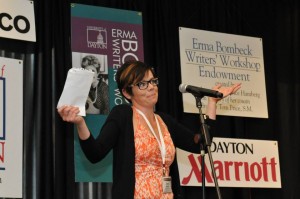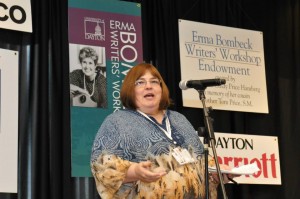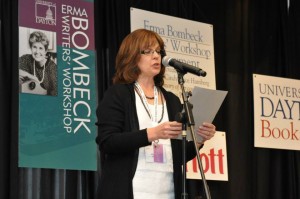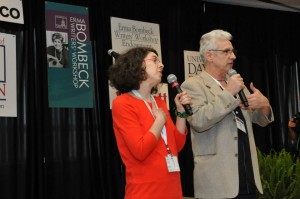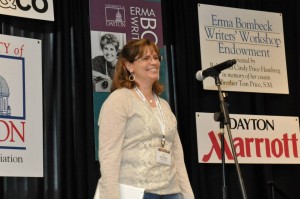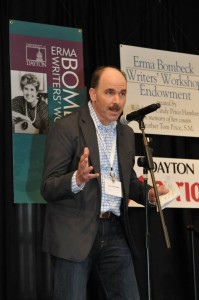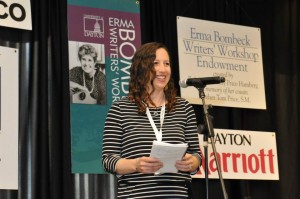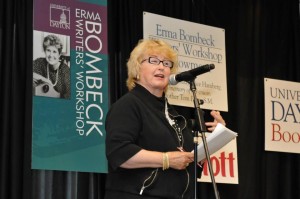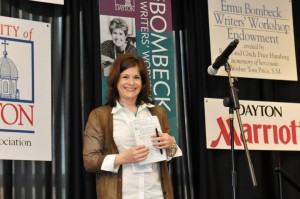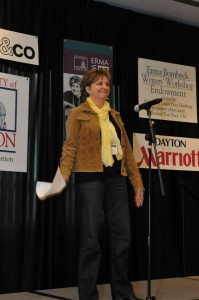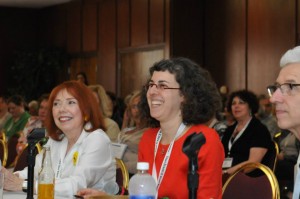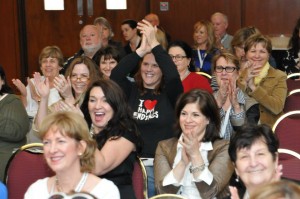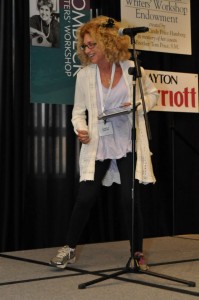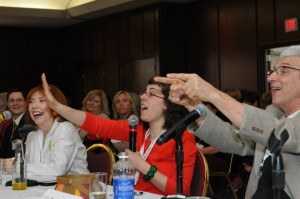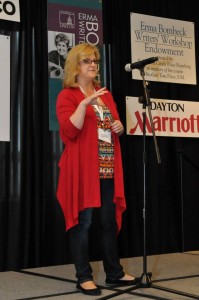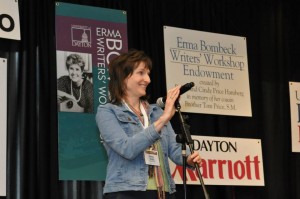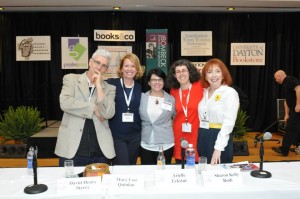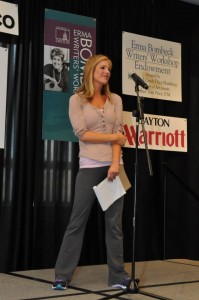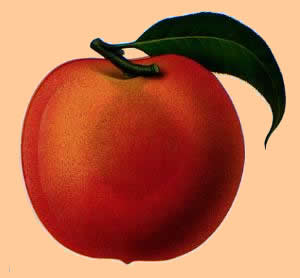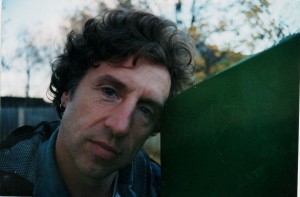Do you have social mediaphobia? Scared opf Twitter? Terrified of Facebook? Shiver at the thought of Instagram? Get yourself a tween mentor. They know how to do everything on social media because their brains are hardwired that way. And, the work for Kit Kat bars.here’s a video we made to show you how.
Tag: writers
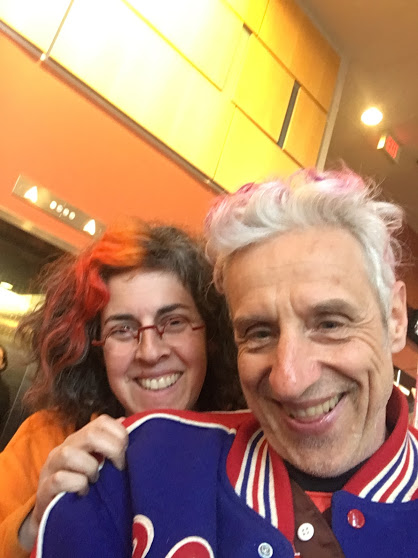
The query gets you past the gatekeepers watchdogs. Or it doesn’t. Find out how top take your best shot.
The Book Doctors break down exactly what you and make an awesome query letter, and how to customize your query for submission purposes only
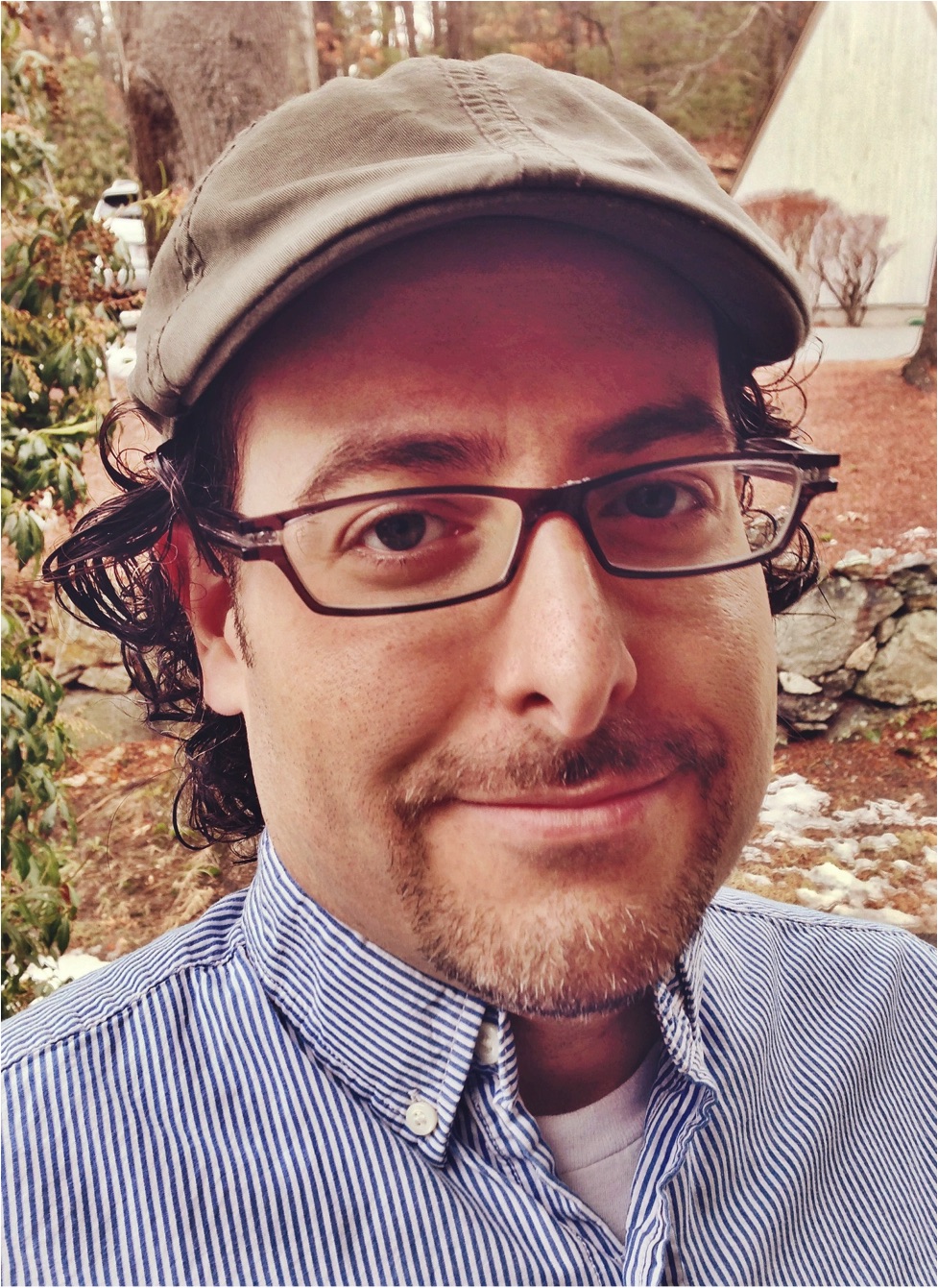
We first met Josh Funk at the New England SCBWI Conference. (If you’re not a member of this group and you’re interested in books for kids, as soon as you’re done reading this piece and sharing it with everyone you know, go join that group. If you haven’t been to one of their conferences, ditto.) We were struck with Josh’s fabulous combination of goofiness and seriousness. It’s something we aspire to at The Book Doctors. And when we found out his debut picture book was going to be dropping, we had a wonderful wave of serious goofiness come over us. It’s called Lady Pancake & Sir French Toast, and it’s a ripping barnburner full of outlandish action, heroic and dastardly characters, roller coaster rhymes and some absolutely fabulous illustrations by Brendan Kearney. So we thought we’d sit down with Señor Funk and see what’s new on Funk Island.
To read this interview on the Huffington Post, click here.


The Book Doctors: First of all, congratulations. What did it feel like when you saw that first box of books arrive and you tore it open and there it was, your own baby book?
Josh Funk: Ahh, the Back to the Future moment: “If you put your mind to it, you can accomplish anything.”
Well, I didn’t exactly have the ‘open the box moment’ that you see in the movies (or at least that one movie). The first physical copy of Lady Pancake & Sir French Toast that I got a copy of was the one the Sterling sales rep gave to Porter Square Books (in Cambridge, MA). I got a tweet from a friendly bookseller at PSB who said she found my book, so I immediately rushed to Cambridge.
The first thing I noticed was the amazing design. I knew it was going to have an embossed cover with foil, but it was really stunning. The book creaked a little when I opened it. I had seen a digital copy, but the clarity of the images on the pages was overwhelming compared to seeing it on the screen. And I think it smelled a little bit like maple syrup.
And then I jumped around giddily for about ten minutes before the booksellers asked me to leave out of fear I was scaring away all of their customers.
TBD: Why in the name of all that’s good and holy would you choose to get into the publishing business? Have you had your head examined recently? Been checked for brain parasites?
JF: Haven’t had my head examined lately. It’s possible I’m housing parasites. But the real reason is that I always read a lot of books to my kids. One day I thought, ‘I can do this.’
But once I joined my first critique group, then attended my first Society of Children’s Book Writers and Illustrators conference, I realized I had a lot to learn. But I also noticed that the kidlit community is so warm and welcoming and just plain fun. I quit my fantasy football leagues and started taking writing more seriously.
I’d like to think that even if I never sold a book, I’d still be happy just to be a part of the kidlit world.
TBD: How did you go about getting a book contract not only for Lady Pancake, but also for your next two books which are coming out?
JF: In the May of 2013, I gave up on trying to acquire a literary agent. I was getting almost no responses to my queries. Out of 35 queries for Lady Pancake, 1 agent responded with a rejection implying she read it (or at least read the title). The other 34 were made up of 10 form rejections and 24 black holes. I felt I was better than that, so I submitted Lady Pancake to 10 publishers via snail mail.
Around the same time, there was an open submission period to Scholastic via author/illustrator Debbie Ridpath Ohi’s Inkygirl blog. The Scholastic editor was looking for material suited for ages 0-5, and the only manuscript I had written for that age group was Pirasaurs! (most of my picture books are geared toward kids ages 4-8).
And then as late summer rolled around, I finished revising another manuscript (Dear Dragon) and decided to send it out to publishers that accepted submissions via email and online form.
By early November, Scholastic told me they were taking Pirasaurs! to acquisitions, Dear Dragon had garnered interest from two small publishers, and Sterling made an offer for Lady Pancake & Sir French Toast. All of that, plus a personal recommendation from a friend helped me obtain representation with an (awesome) agent. Over the next two months, my agent finalized the deals with Sterling and Scholastic and found a home for Dear Dragon at Penguin/Viking.
And that’s how I got an agent and sold three picture book manuscripts between November of 2013 and January of 2014. I know it’s a non-traditional path, but I feel extremely fortunate with the way it worked out.
TBD: Hasn’t anyone told you that rhyming books don’t sell? How did you overcome this ridiculous idea, and why do you think people keep saying that?
JF: Oh, boy. I have thought about this a LOT. Many rhyming picture books get published every year. So why do people say not to write in rhyme? Why is there this stigma? Well, there’s a single simple reason.
It’s very easy to write bad rhyme.
And lots of people do (please note that if you’re reading this and you like to write rhyming picture books, I’m not talking about you).
Everyone grew up reading and loving Dr. Seuss. Therefore, many people think that picture books are supposed to rhyme. When they start writing picture books, that’s how they write them. This includes me.
It’s a flawed way of thinking. Not everyone is cut out to write rhyming picture books. It’s actually rather difficult. I personally believe that a good rhyming picture book has an added level of charm. But there are so many mistakes you can make when writing a rhyming picture book (mostly to do with rhythm, all of which I’ve discussed in depth on my website and while leading workshops).
But here’s the problem. When a literary agent receives a query for a rhyming picture book manuscript, there’s a 99% chance that it’s bad rhyme. And it’s not worth the agent’s time to read 99 bad rhyming manuscripts, just to get to the one good one. And I completely understand and agree with that policy. Add to that the fact that it’ll be nearly as hard for an agent to sell a rhyming manuscript to an editor. I truly believe that this is why my query response rate was so utterly abysmal (in retrospect, I shouldn’t have said that the manuscript rhymed in the query).
I overcame this hurdle by first worked very hard to improve my rhyming, spending lots of time reverse-engineering critique partners’ comments.
Second, I bypassed agents. An agent is (rightfully) concerned with a writer’s entire body of work and career. If you submit a single rhyming manuscript embedded in an email query and that’s all they have to go on, it doesn’t make you a particularly enticing prospective client. But an editor is more concerned with a single manuscript. It’s not that they don’t care about you or your career, but if they like a manuscript, rhyming or not, that’s all they have to commit to.
I figured I’d have better odds of someone actually reading my manuscript at a publishing house. And at least in this case, I was correct.
TBD: What are some of your favorite things about being a professional author? What are some of the most horrifying things about being a professional author?
JF: I love getting to meet fun people. Like other awesome authors I admire. And super cool teachers and librarians like those in the Nerdy Book Club. Seeing my son’s face the first time someone asked me for an autograph (part confusion, part amazement, part pride) – that was pretty cool. I also get to travel a little more than I used to.
Horrifying? I guess a Misery-type situation would be horrifying. Other than that, I’m all peaches and roses.
TBD: We are big lovers of pancakes and French toast around here. I, myself, leaned toward the pancake. Olive, our eight-year-old, often leans toward the French toast. I think you can divide all of humanity into these two categories. How did you come up with this fantastic idea for a book?
JF: One Saturday morning, I asked my kids what they wanted for breakfast. One said, “Pancakes.” The other said, “French toast.” “Pancakes.” “French toast.” “Pancakes!” “French toast!”
While the arguing continued, I checked the kitchen, and as you might have expected, all we had were waffles. To top it off (literally and figuratively), we had enough maple syrup left to fill a single square on a waffle grid.
It was on the way to the diner that I came up with the idea.
TBD: What was it like working with your editor? Illustrator? Agent?
JF: Zaneta Jung (my editor at Sterling) is terrific. We had one phone conversation discussing her revision notes, went back and forth for a week over email finalizing the manuscript, and that was pretty much it. Zaneta (pronounced ‘zuh-net-ta’) has so much energy and excitement for kids’ books. She has a great eye for picking out illustrators, too. She definitely had a hand in finding Brendan Kearney.
Like many author/illustrator relationships, Brendan and I didn’t really talk much (or at all). Rumor has it that the publishers like it this way. Author talks to editor editor talks to art director art director talks to illustrator. This way, the publisher maintains complete control of the message (good or bad). I’ve had nothing but good things to say about Brendan’s work on Lady Pancake, which I think have been relayed to him. I’ve had a handful of quick conversations with Brendan over Google chat, but that’s about it.
My agent, Kathleen Rushall, is a rock star! I was extremely fortunate to sign with her while she was actively building her picture book list. She represents picture books through young adult at Marsal Lyon Literary Agency and is strong in every aspect you’d want from an agent. She has a fabulous editorial eye, she has a good sense of what particular editors are looking for, she knows the business and contracts side, she’s extremely communicative, and she’s a genuine pleasure to work with. We, her clients, affectionately refer to ourselves at #TeamKrush. We even have a logo designed by author Jessie Devine for PitchWars.
TBD: What do you see is the value of going to a writer’s conference? And specifically how has being a member of SCBWI helped you in your career and as a person?
JF: I think going to a writer’s conference is valuable at many levels of your career. If you’re brand new to the writing world, you’ll be able to learn the basics. It’s important to learn not only the craft of writing, but also about the industry and its expectations (e.g. picture book manuscripts should be around 300-500 words).
Once you’ve learned the basics, you might meet people who will ultimately become your critique partners (this has happened to me).
Perhaps you’ll read a picture book manuscript at an event’s open mic session, which will validate that you’re on the right track (also happened to me).
Maybe you’ll have a good time, make some friends, and get to watch the one-of-a-kind #Pitchapalooza led by The Book Doctors (again, happened to me).
Conferences avail the opportunity to connect with agents and editors for critiques or casual conversations (networking is so important).
SCBWI kickstarted everything for my writing life. In 2012, I attended my first New England SCBWI Regional Conference as one of about 700 attendees. And in 2016, I’ll be co-coordinating the conference alongside Heather Kelly, writer and founder of The Writers’ Loft (planning is already heavily underway for next spring’s event).
In 2016, we’re trying something new. We thought it might be nice to hear from (and get face time with) leading educators and booksellers. We’re bringing in a panel tentatively called “The Voice of Reading” with Elizabeth Bluemle (author, bookseller, blogger at PW’s Shelftalker), Donalyn Miller (teacher, author of The Book Whisperer and Reading in the Wild, Nerdy Book Club co-founder), Susannah Richards (professor, expert in all things children’s literature), and John Schumacher (AKA Mr. Schu, school librarian, newly appointed Ambassador of School Libraries for Scholastic Book Fairs).
SCBWI has helped me so much in such a short period, I’m grateful for the opportunity to volunteer my time to plan the 2016 (and 2017) NE Regional Conferences.
TBD: I hate to ask you this, but what advice do you have for writers?
JF: Keep writing. When you finish a manuscript, write the next one. It’ll be even better than the last. Networking is half the battle. I’ve written a 12-Step Guide to Writing Picture Books available (for free) on my website here.
TBD: And finally, how do you keep it so funky?
JF: I eat lots of candy corn. I wear Old Spice deodorant. And I’m 17% psychic.
Josh Funk is the author of Lady Pancake & Sir French Toast (Sterling), available now. Josh is also the author of the forthcoming picture books Dear Dragon(Viking/Penguin 2016), Pirasaus! (Scholastic 2017), and more. Josh spends his days as a software engineer writing Java code and Python scripts, and his nights and weekend drinking Java coffee and writing picture book manuscripts, alongside his wife, children, and assorted pets and monsters. Josh is a board member of The Writers’ Loft in Sherborn, MA, and the co-coordinator of the 2016 and 2017 New England Regional SCBWI Conferences. Find out more about Josh, his books, his schedule for public appearances, and more at www.joshfunkbooks.com and on Twitter at @joshfunkbooks.
Arielle Eckstut and David Henry Sterry are co-founders of The Book Doctors, a company that has helped countless authors get their books published. They are also co-authors of The Essential Guide to Getting Your Book Published: How To Write It, Sell It, and Market It… Successfully (Workman, June 2015). They are also book editors, and between them they have authored 25 books, and appeared on National Public Radio, the London Times, and the front cover of the Sunday New York Times Book Review.
Join our newsletter to receive more interviews and tips on how to get published.
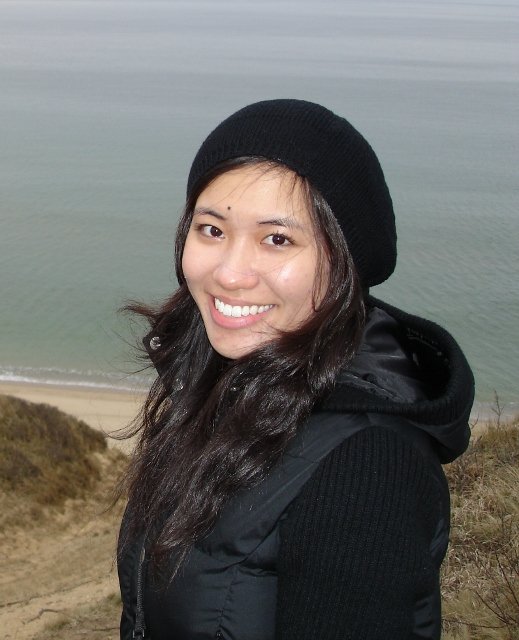
This is originally from a great website called Novel Pitch.
Gloria Chao was the winner of the 2015 Pitchapalooza contest put on by The Book Doctors. She and I connected via twitter. The following is her experience from the event. 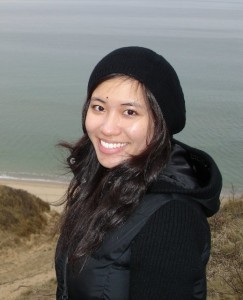
I am honored that NovelPitch has invited me to share my experience pitching in The Book Doctor’s 2015 Pitchapalooza contest. I’m a strong supporter of writers helping writers, and am excited to give back (though I wish I could give more!) to the community that has helped in my journey thus far. Thank you, Ralph, for your Novel Pitch efforts, and thank you, fellow writers, for your constant support.
I heard about the Pitchapalooza contest through Twitter and submitted my query. Based on The Book Doctors’ comments, I believe my pitch stood out because of the specifics—namely, the wording and humor. Since my novel is multicultural, I used words that gave a taste of Chinese culture, e.g. “sticking herself with needles” and “fermented tofu.” I also highlighted the wacky characters with phrases such as “expiring ovaries,” “unladylike eating habits,” and “Taiwanese Ivy Leaguer.” I think capturing the manuscript’s voice in the query was why my pitch was chosen.
Winning Pitchapalooza gave me confidence and the courage to keep fighting. It also helped bring my manuscript to the next level. I had struggled with my genre, pitching NA contemporary for the contest. The Book Doctors helped me realize this was the incorrect categorization, pointing me toward adult with suggestions to age up my manuscript by changing from first person to third. This released a flood of ideas, and I spent the next several months rewriting—adding 24K words, changing the POV, and writing with a women’s fiction audience in mind. I ended up with a manuscript that finally felt right.
The journey to publication is infamous for being long and relentless, but enjoying the small accomplishments along the way (and the writing, of course!) is what keeps me motivated. Putting ideas into words, sharing work with others, getting a personalized rejection, receiving a request, winning a contest—these are all achievements that require courage and are worth celebrating. And the writing community, including myself, will always be happy to celebrate with you!
Here are some of my tips for making your query stand out:
- If you’re new to querying, check out Query Shark, published authors’ blogs, Writer’s Digest, and craft books.
- Keep the 250 word count in mind, but only at the end. When you first start, just write. You’re more likely to have gems if you’re whittling down.
- Avoid clichés, generalities, and obvious stakes. Use unique words to convey your voice (and do this in your manuscript as well).
- Cut out every word that’s not essential. Too much detail bogs the story down.
- When you think your query is ready, get fresh eyes on it—family (my husband read a thousand versions of my pitch), friends, and other writers you meet through Twitter. Start with those familiar with your book, then end with people who know nothing about it. The latter will help identify confusing elements and will let you know if the pitch as a whole is not grabbing enough. Then, seize every critique opportunity by entering contests.
You can read Gloria’s winning pitch for AMERICAN PANDA here.
About Gloria:
I earned a bachelor’s degree from MIT and graduated magna cum laude from Tufts Dental—the perfect Taiwanese-American daughter. Except I wasn’t happy. To get through practicing dentistry, I wrote. It took years to gather the strength to push my dental career aside, against my parent’s wishes, to pursue writing full-time. Our relationship suffered, but my most recent novel, AMERICAN PANDA, strengthened our bond by forcing me to ask questions I never dared before. Now, my mother and I laugh about fermented tofu and setups with the perfect Taiwanese boy (though I think she still worries about my expiring ovaries).
You can find out more about Gloria at her website and on twitter.
Website: https://gloriachao.wordpress.com/
Twitter: https://twitter.com/gloriacchao
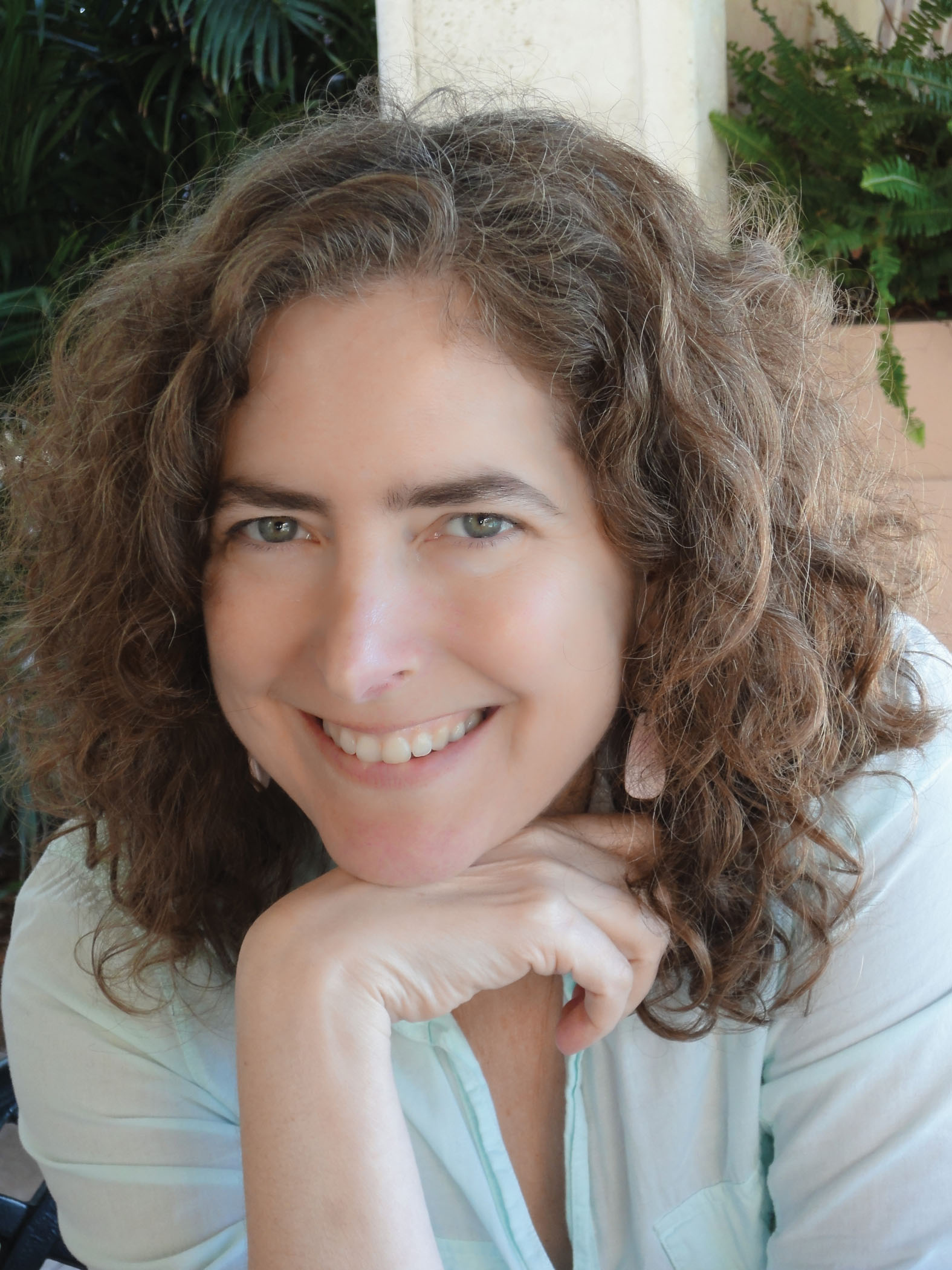
To read on Huffington post, click here..
After three different people recommend the book to me, I always try to read it. This is the case with Birds of Paradise by Diana Abu-Jaber. It was one of those rare books that I found literary yet page turning. A work of art but also a work of commerce. So I thought I’d reach out to her, to find out exactly how the heck she does it.
The Book Doctors: What is your writing process from coming up with the idea through writing the first draft and then revising and working with an editor?
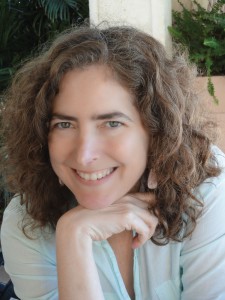
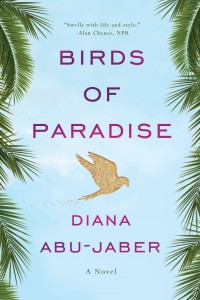 Diana Abu-Jaber: The Book Doctors: I write my novels long hand in the first draft. I used to transcribe them myself, which of course is wildly time consuming. These days I hire a typist and then revise on the computer. I try to get several eyes on a manuscript before it goes to my agent–I’m often in some sort of writing group and will inflict hundreds of pages on them, begging for feedback. My agent always has excellent editorial advice, and my editor is–I say this with a smile–extremely involved. She is brilliant and I’m lucky to have her guidance and support.
Diana Abu-Jaber: The Book Doctors: I write my novels long hand in the first draft. I used to transcribe them myself, which of course is wildly time consuming. These days I hire a typist and then revise on the computer. I try to get several eyes on a manuscript before it goes to my agent–I’m often in some sort of writing group and will inflict hundreds of pages on them, begging for feedback. My agent always has excellent editorial advice, and my editor is–I say this with a smile–extremely involved. She is brilliant and I’m lucky to have her guidance and support.
TBD: Having written memoir and fiction, how do you approach these two forms differently?
DAJ: Novels I understand better. They’re about trying to get the story down–which is never easy, but the process makes more sense to me. Memoirs are more elusive to me. I’m trying to write a new one now and first I wrote it as straight chronological narrative, then I had to go back over the whole thing, bust it into sensory fragments, then pull up the big themes, then try to weave it together again. There must be an easier way, but I haven’t found it yet.
TBD: What kind of training did you get in learning how to be a professional writer?
DAJ: My father was a story-teller and my mother was a reading teacher, they really gave me my foundation. I took a lot of writing classes and workshops in high school and college, but I think they were most valuable in giving me the justification for pursuing this madness and instilling the sense of an audience.
TBD: What’s the best advice anyone ever gave you about writing?
DAJ: Start with yourself, work out from there.
TBD: I love the way you use food in Birds of Paradise, how did you come up with & implement the idea of weaving food through the narrative?
DAJ: Thank you. I’ve been writing around and about food for a long time. I come from a line of serious cooks and it was something I thought I’d do professionally to support my writing. I used to keep little writing books in my pocket when I worked in kitchens and it naturally became one of the lens through which I saw the world.
TBD: It seems one of the themes in Birds of Paradise is how disconnected Americans are from each other. Family. City. Country. What made you want to write about that?
DAJ: That’s interesting– I hadn’t been conscious of that as I was writing! But it makes sense as it’s a bit of an obsession for me. I think it comes from a lifetime of listening to the Arab side of my family complain about the American side. It’s a real Old / New World divide, the tradition of gathering, talking, cooking, and eating together is still very strong in other countries and I see it getting winnowed away in this country– everything sacrificed to the great American time crunch. I think it’s one of our great and most catastrophic losses.
TBD: What is it like to judge writers for the National Endowment of the Arts?
DAJ: Enormous fun and crazily exhausting. The piles of manuscript boxes that come in before the judging kind of makes you want to weep. But then the actual week of judging is so intense and interesting– the other writers I worked with were so smart and talented, I’m grateful to have done it.
TBD: What advice do you have for writers?
DAJ: As much as you’re able, don’t worry about what others are doing– try to keep your head in the work. Read widely and continually and work on your writing on a daily basis. It’s a marathon not a sprint.
Diana Abu-Jaber’s newest novel, Birds Of Paradise, is the winner of the 2012 Arab-
American National Book Award. It was also an Indiepicks selection, named one of the
top books of the year by National Public Radio, the Washington Post, and the Oregonian,
and a finalist for both the Northwest Bookseller’s Award and the Chautauqua Prize.
Diana was born in Syracuse, New York to an American mother and a Jordanian father.
When she was seven, her family moved to Jordan for two years, and elements of both her
American and Jordanian experiences, as well as cross-cultural issues appear in her work.
Her novel, Origin was named one of the best books of the year by the LA Times, the
Chicago Tribune, and the Washington Post. Her second novel, Crescent, won the PEN
Center Award for Literary fiction and the American Book Award. Her first novel,
Arabian Jazz won the Oregon Book award for Literary Fiction and was a finalist for the
PEN Hemingway Award. The Language of Baklava, her cooking memoir, won the Northwest Booksellers’ Award, was a finalist for a James Beard Award, and has been published in many languages. Diana teaches at Portland State University and divides her time between Portland, Oregon and Miami, Florida. She can be found on Twitter at: @dabujaber and on her website www.dianaabujaber.com
Arielle Eckstut and David Henry Sterry are co-founders of <a href=”http://www.thebookdoctors.com/” target=”_hplink”>The Book Doctors</a>, a company that has helped countless authors get their books published. They are also co-authors of The Essential Guide to Getting Your Book Published: How To Write It, Sell It, and Market It… Successfully (Workman, 2010). Arielle Eckstut has been a literary agent for 20 years at The Levine Greenberg Literary Agency. She is also the author of eight books and co-founder of the iconic brand, LittleMissMatched. David Henry Sterry is the best-selling author of 16 books, on a wide variety of subject including memoir, sports, YA fiction and reference. His books been translated into 10 languages, and he’s been featured on the front cover of the Sunday New York Times Book Review. They have taught their workshop on how to get published everywhere from Stanford University to Smith College. They have appeared everywhere from The New York Times to NPR’s Morning Edition to USA Today. Twitter: @thebookdoctors
</a>
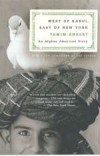
To commemorate the publication of the 10 year anniversary edition of my memoir Chicken Self:-Portrait of a Man for Rent, I have decided to do start The Memoir Project. I’ll be doing a series of interviews with memoirists I admire. I have known Tamim Ansary for what seems like a lifetime, but isn’t. He runs the San Francisco Writers Workshop, and in that capacity he demonstrates every Tuesday night how much he knows about writing and books and people. He’s been a professional writer for a very long time. I’ve said publicly that he is the wisest men I know, and I stand by that statement.
David Henry Sterry: Why in god’s name did you decide to write a memoir?
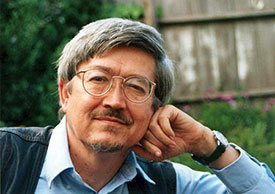 Tamim Ansary: Well, that’s a complicated question since I’ve written three. The first one, West of Kabul, East of New York, I wrote in response to a historical moment. The events of 9/11 had highlighted to rift between the Islamic world and the West, which took most Americans by surprise. I knew all about this issue because I was born in Afghanistan of an Afghan father and an American mother, I had grown up in but grown old in America, and so my whole life had straddled this crack in the culture of the planet. I felt like I was the guy perched on the fence who could see the people on both sides even though they couldn’t see each other. I thought writing about my bicultural life might do some good in the world. The second memoir I wrote was actually someone else’s. I wrote it for an Afghan girl named Farah Ahmadi who had stepped on a land mine when she was in second grade, had lived the horrors of the long war in Afghanistan, and had confronted them with flabbergasting dignity and courage. The exact circumstances of my writing that memoir are peculiar, but I thought her life was an embodiment of both tragedy and resilience that people should know about. So these memoirs were attempts to engage with the world of politics and history. But my latest memoir is a very different sort of project. This is a more philosophical examination of “life story,” a phrase we often use without pausing to consider the implications; because the quesiton is, does a life have a story, a narrative arc, in the same way as a novel? A beginning, middle and end that adds up to meaning of some sort? Several years ago, I was telling someone about a trip I had taken, I happened to tell it all one sitting, and when I was done, it struck me that any journey to any place far away and difficult to reach has a narrative arc if consider it as a whole. I wondered if I could capture the “story-like arc” of one-whole-life by recounting a selection of iconic journeys. The result is Road Trips. The journeys I chose for this book took place when I was 10, 19, 24, 31, 50, and 52: so the movement is through time as much as space. This memoir is not hooked to news events or public issues, it tells a private story, and it’s a story I believe all of us have some version of: that odyssey from young to old and the things that happen along the way: falling in love, falling out of love, breaking up, breaking down, drifting, drowning, searching for solid ground… and finding it…maybe… The details are different for each person but underneath the welter of particulars is, I think, some single story that can be made visible only through the details of a specific life. Mine is the only life I know well enough to use as such a lens, and so I wrote this book. But I’m hoping this book will get readers ruminating on the story-like elements of their own lives even if, as is likely, their lives and mine don’t share a single particular detail. Because my premise here is that the narrative is there in every life; it’s there, you just have to look for it.
Tamim Ansary: Well, that’s a complicated question since I’ve written three. The first one, West of Kabul, East of New York, I wrote in response to a historical moment. The events of 9/11 had highlighted to rift between the Islamic world and the West, which took most Americans by surprise. I knew all about this issue because I was born in Afghanistan of an Afghan father and an American mother, I had grown up in but grown old in America, and so my whole life had straddled this crack in the culture of the planet. I felt like I was the guy perched on the fence who could see the people on both sides even though they couldn’t see each other. I thought writing about my bicultural life might do some good in the world. The second memoir I wrote was actually someone else’s. I wrote it for an Afghan girl named Farah Ahmadi who had stepped on a land mine when she was in second grade, had lived the horrors of the long war in Afghanistan, and had confronted them with flabbergasting dignity and courage. The exact circumstances of my writing that memoir are peculiar, but I thought her life was an embodiment of both tragedy and resilience that people should know about. So these memoirs were attempts to engage with the world of politics and history. But my latest memoir is a very different sort of project. This is a more philosophical examination of “life story,” a phrase we often use without pausing to consider the implications; because the quesiton is, does a life have a story, a narrative arc, in the same way as a novel? A beginning, middle and end that adds up to meaning of some sort? Several years ago, I was telling someone about a trip I had taken, I happened to tell it all one sitting, and when I was done, it struck me that any journey to any place far away and difficult to reach has a narrative arc if consider it as a whole. I wondered if I could capture the “story-like arc” of one-whole-life by recounting a selection of iconic journeys. The result is Road Trips. The journeys I chose for this book took place when I was 10, 19, 24, 31, 50, and 52: so the movement is through time as much as space. This memoir is not hooked to news events or public issues, it tells a private story, and it’s a story I believe all of us have some version of: that odyssey from young to old and the things that happen along the way: falling in love, falling out of love, breaking up, breaking down, drifting, drowning, searching for solid ground… and finding it…maybe… The details are different for each person but underneath the welter of particulars is, I think, some single story that can be made visible only through the details of a specific life. Mine is the only life I know well enough to use as such a lens, and so I wrote this book. But I’m hoping this book will get readers ruminating on the story-like elements of their own lives even if, as is likely, their lives and mine don’t share a single particular detail. Because my premise here is that the narrative is there in every life; it’s there, you just have to look for it.
DHS: What were the worst things about writing your memoir?
TA: The worst thing, I guess, is getting flak from people whom I mentioned in the memoirs, people whose feelings I hurt, people who didn’t seem themselves the way I portrayed them, people who were disturbed, in some cases, to experience themselves as a side chaaracters in someone else’s life, not as the protagonist which is everybody’s internal identitication of him- or herself. And there’s another disturbing thing, which is bound to happen when you write a memoir, especially if you’re doing it right, and especially if the focus is on your own life, not on some public event you observed. This is the discovery of narratives you’ve been carrying in your head all your life which are distorted, even false.
DHS: What were the best things about writing your memoir?
TA: I’ll start where my answer to your last question ended. Gaining discomifting new perspectives on the things you’ve seen, done, and felt is also the good thing about writing a memoir. One can never have too many epiphanies. And in the case of Road Trips, writing it brought epiphanies not just about my own little life but about the life we’re living on this planet, the implications of permanence and change, culture and identity, memory and time, fiction and reality–I mean writing a memoir, if you share my premise about life as story, does immerse you in the most fundamental issue of them all: everything feels so real when it’s happening, but when you look back, all you see is story. So was any of it real in the first place? And if,like me, you decide it was and you feel a connection to what is real, there is no better feeling.
DHS: Did writing your memoir help you make some order out of the chaos we call life?
TA: Asked and answered, your honor? Well, the true answer is yes and no. A memoir helps you make sense of things. Then life keeps happening and it all grows muddy again. You look back and the meaning of it all changed, even stuff you wrote about earlier and thought you nailed completely. The train never stops moving and the same landscape keeps looking different as you move.
DHS: How did you make a narrative out of the seemingly random events that happened to you?
TA: Well, random is a part of life, but so is intention. We’re never just knocking about like particles in Brownian motion. We’re always trying to push our story forward, through the random flotsam and jetsom of the world. Some of that flotsam are obstacles and so they inherently become part of our story; some turn out to be tools but only if we figure out that we can use them, and so those are part of the story too. Some don’t fit into the story either way, so we ignore them, forget them. My premise is that when you write a memoir, you don’t “make a narrative,” you find the narrative. Intentions and obstacles are the indispensable elements of story and those exist in real life at every moment for every person.
DHS: How was the process of selling your memoir?
TA: Selling the first one was easie macheesie because I had just written an email in reaction to the events of 9/11 to twenty or thirty of my friends explaining what I, as an Afghan, thought about the horror because I knew they’d all be asking and I thought it would be say it once to all twenty of them. Those twenty each sent my email to dozens of their friends and by the next day the email had gone viral across the globe and by the weekend had reached tens of milliions–it was, in fact, one of the first examples of the viral phenomenon that the Internet has made possible. That 900 words email took no longer to write than to type. Don’t tell met here is an inherant contradiciton between random events and story: nothing could be as random and accidental as that email and yet it is certainly a story. Anyway, after the email went viral, my agent had no trouble getting publishers interested. The second one, Farah Ahmadi’s The Other Side of the Sky was an odd one. Good Morning America staged a contest for the most inspiring life. Various people sent in one-page descriptions of their life story and the one judged most inspiring got a bunch of cash and a book about them written by a professional writer. Farah won the contest, and I was part of her prize. The third one I’ve just completed, so I’m still n the process of selling it. The difficulty here is that memoirs usually sell on their news hook. They promise to take readers to places they have not been and could never go without this memoir. I promise just the opposite: I intend to take readers to places they too have been, not to startle them with how unique my life has been but to startle them with how unique theirs has been. We’ll see if that concept sells.
DHS: How did you go about promoting and marketing your memoir?
TA: I’m not much of a guy for marketing and promotion much, so I just write ’em and hope the chips fall were they do me some good. The publisher did send me on an extensive book tour for West of Kabul, East of New York, bookstores mostly, and I read from my book and talked. With Road Trips, I’ve been reading from it at literary events, bars, bookstore reading and whatnot while I’ve been writing it, to enthusiastic response, so perhaps I’ve been building an audience for it even while it has been in progress.
DHS: Did you have difficulty speaking in public about the intimate aspects of your memoir?
TA: I used to have difficulty speaking in public about anything—really, anything. Then 9/11 happened, that email went viral, and suddenly I was yanked onto various stages and in front of cameras and microphones facing crowds clamoring to know the stuff I happened to know about and the crisis was so intense, I had to tell what I knew, pour it out, no time to remember that I was shy about speaking in public, I was babbling nonstop, scarcely even knowing what I was saying, for months. When it finally slowed down, I found I no longer had any difficulty speaking in public about anything. And that transformation ha endured. Still, I maintain some reserve. Anything I’ve written about, I’ll speak about. Why not? It’s already out there. Anything I’ve held back about in writing, I will maintain some reserve about in public too. The thing is, I was out to tell my story. People whose paths have crossed mine have shown up in my story, but they have their own stories and I try not to be the one that’s telling theirs.
DHS: How did your family, friends and loved ones react to your memoir?
TA: After I published West of Kabul, East of New York, my mother said “What do you mean I had brown hair? I was a blond!” One of my cousins said how could I call a famous ancestor of ours “a landowner and a poet.” He was a saint! Another cousin observed that of the uncles I had mentioned, his father should have been named the most eminent. An aunt wasmiffed that I had called another aunt Elizabeth-Taylor beautiful. I have also gotten some pretty severe and wounding blowback from Road Trips. On the other hand, I think the first memoir helped me and my brother reconnect after a long estrangement. If you’re going to write a memoir, you have to be ready for some flak. You’ll get it even from—perhaps most of all from—people you’ve scarcely mentioned.
DHS: I hate to ask you this, but you have any advice for people who want to write a memoir?
TA: Well, I’ll say one thing about process: I think it’s a good idea to start without a plan and to do your first rush of remembering while you’re at the keyboard typing away, writing it down. I’d say, let the process of association take you where it will. I’d say, don’t pay attention to what you’re saying or what you’ve just said, focus only on what you’re about to say. Don’t push the string, let yourself be pulled. Later you’ll see what you’ve got and at that point you’ll have to apply other skills to craft your work, but the first skill to cultivate is letting go and not caring or judging. Association is the mechanism of memory, and memory is itself a narrative-creating machine. We tend to think of memories as videotapes that we bring out of storage, but neural scientists tell us that memories are constructed in the act of remembering. They also say that more than half of what we think are perceptions are actually reactions to memory. When we reach for a doorknob we only perceive a flash of color and shape, memory supplies the fact that it is a doorknob and what a doorknob is and what we can do with one. Expand that perception and you realize that we’re always living as much in a story as in an immediately present world, in a narrative whose shape depends on what has happened before and what we expect or hope will happen later.S ettle in with this truth and you begin to see what a gigantic thing it is to write a memoir.
Tamim Ansary writes memoir, fiction, history, essays, and blogs. His book West of Kabul, East of New York tell the story of a life straddling Afghanistan and America. He runs the 65-year-old San Francisco Writers Workshop as well intensive memoir workshops in his home.
David Henry Sterry is the author of 16 books, a performer, muckraker, educator, activist, and book doctor. His new book Chicken Self:-Portrait of a Man for Rent, 10 Year Anniversary Edition, has been translated into 10 languages. He’s also written Hos, Hookers, Call Girls and Rent Boys: Professionals Writing on Life, Love, Money and Sex, which appeared on the front cover of the Sunday New York Times Book Review. He is a finalist for the Henry Miller Award. He has appeared on, acted with, written for, been employed as, worked and/or presented at: Will Smith, a marriage counselor, Disney screenwriter, Stanford University, National Public Radio, Milton Berle, Huffington Post, a sodajerk, Michael Caine, the Taco Bell chihuahua, Penthouse, the London Times, Edinburgh Fringe Festival, a human guinea pig and Zippy the Chimp. He can be found at www.davidhenrysterry.com. https://davidhenrysterry.com/
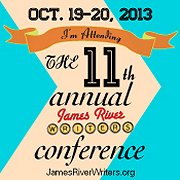

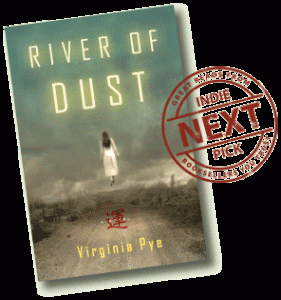 Originally published in Huffington Post.
Originally published in Huffington Post.
We first met Virginia Pye at the James River Writers Conference, one of the best writers conferences in America. If you’re a writer, do yourself a favor, get yourself to Richmond, Virginia and go to this conference. It’s filled with warm, generous, talented writers, editors and agents. When we first met Virginia Pye three years ago, she’d been writing and rewriting a novel for a very long time. It’s always exciting when you see a dedicated, talented writer who keeps evolving and changing and working, then finally gets their novel published, and actually gets lauded for it. So we thought we would check in with her to see exactly how it all happened.
The Book Doctors: Congratulations on being named an Indie Next Pick for your new novel, how did you feel when you found out?
Virginia Pye: I felt honored and excited, especially when I learned the other chosen authors, such as Caroline Leavitt, Benjamin Percy, Gail Godwin and Therese Anne Fowler. To be supported and encouraged by IndieBound booksellers means a lot to me. They’re smart and savvy book aficionados whose opinions I value. For years, I’ve read the books they recommend.
TBD: When did you start writing your book and why?
VP: Almost a decade ago as I helped my parents clear out their house, I came upon boxes of yellowed onion-skin pages with faint typescript on it. My grandfather, who was a missionary in northwestern China in the nineteen teens, had recorded his daily experience and impressions of that pre-industrialized, desolate, and yet eerily beautiful landscape. I’d always known about the roads, hospitals and schools that he had built in Shansi Province, but now I found his actual tally book in which he kept track of his converts. I felt both pride about his humanitarian successes and shame at his missionary zeal.
As I read his papers and studied the brown-tinged photographs, I was seated on an Oriental rug in the living room were I’d grown up–a room decorated with Chinese antiques and furniture. I was surrounded by my family’s history in China and I realized that, whether I liked it or not, part of my inheritance was a colonialist perspective on the world. I had not chosen it, nor felt that I shared it, but it was somehow mine to make peace with just the same.
The two main characters in my novel, the Reverend and his wife Grace, are upright, Midwestern missionaries who, over the course of their dramatic story find their faith tested and their world view shattered. It took some years for their story to fully emerge, but the germ for it began when I decided to wrestle with my grandfather’s legacy that I had previously tried to ignore.
TBD: What is your book about?
VP: On the windswept plains of northwestern China, Mongol bandits swoop down on the missionary couple and steal their small child. The Reverend sets out in search of the boy and becomes entangled in the rugged, corrupt landscape of opium dens, sly nomadic warlords and traveling circuses. He develops a following among the Chinese peasants who christen him Ghost Man for what they perceive as his otherworldly powers. Grace, his wife, pregnant with their second child, takes to her sick bed in the mission compound, where visions of her stolen child and lost husband beckon to her from across the plains. The foreign couple’s savvy, elderly Chinese servants, Ahcho and Mai Lin, eventually lead them on an odyssey back to one another and to a truer understanding of the world around them. River of Dust is a story of the clash of cultures and of retribution, and also of redemption. As the young American couple’s search for their child becomes more desperate, their adopted country comes to haunt them, changing not only what they believe but who they are.
TBD: You are involved with the James River Writers Conference, how did that community help you with the writing and selling of your book?
VP: James River Writers is a literary non-profit in Richmond, Virginia with around 400 members. I was chair of JRW for three years and on the board for close to a decade. JRW holds an annual conference each October, which is especially welcoming and friendly to writers of all types. I enjoyed working with everyone involved and made friends with many fellow aspiring writers, as well as the published authors and publishing professionals who came for the conference. Many of them were encouraging and offered to introduce me to their agents or fellow editors. JRW set a supportive and generous tone that I think everyone benefited from.
TBD: Did you hire an editor?
VP: For many years, I had worked on a previous novel that was about three generations of an American family with ties to China and Vietnam. It went through twenty-one drafts and dozens of agents saw it in various stages. They admired the writing and characters, but found that it just wasn’t quite working. Finally, I decided to take my manuscript to The Porches, a writing retreat in rural Virginia where I met author and editor, Nancy Zafris. She offered a different sort of editing experience from anyone else I’d heard of: she works with authors one-on-one over a weekend, discussing and brainstorming about the work. With Nancy’s perceptive questions, I began to see a new book emerging, one that was not a multi-generational story at all, but a compact and dramatic tale set in one year–1910–and in one setting–northwestern China. I left The Porches after that weekend with a new book in mind and a new, carefully conceived outline. I sat down on April 1st and completed a first draft on April 23rd. I had lived with the previous manuscript for so long– had wrestled with its problems and relished its strengths–that when it came time to write an altogether new version, I had enough previous connection to the characters and setting that the story came forth easily. It was both miraculous and not at all.
TBD: How did you find an agent?
VP: After I completed my marathon first draft of River of Dust, I shared it with Nancy who passed it along to her editor at Unbridled Books, Greg Michalson. He liked it and gave me a call. It was then that I realized I needed an agent. Gail Hochman had read the earlier multi-generational manuscript as well as another novel of mine. She had always been kind and thoughtful in her replies to my work, although she hadn’t taken me on as a client. I admired her authors–Michael Cunningham, Julia Glass, Ursula Hegi–so I chose to go back to her with River of Dust when Unbridled made their offer. I’m so glad I did. As everyone knows, Gail is a brilliant agent and an enthusiastic and caring person.
TBD: What are some of the mistakes you made as you wrote and tried to sell your book?
VP: In retrospect, I think that it may have been a mistake to work for so long on that previous novel. If something isn’t working, tinkering with it probably won’t help. To give myself more credit, I did revise–sometimes extensively–but I still wanted that manuscript to be the book I had in mind from the start. I was determined to bend the characters and plot to fit the book I envisioned. Somehow I wasn’t listening well enough to the voices of smart readers, or even my own voice that was whispering that it just wasn’t working. The manuscript was telling me that it needed to be altogether different. I was trying to write a book with a complicated structure before ever truly perfecting a simpler one. Perhaps there’s a lesson in that, too: succeed first at something smaller, before trying to tackle your opus. Come to think of it, I know a number of writers who have been working on big books for years and those projects never seem to come to fruition. Perhaps aiming for something less baroque and yet doing it well is a better way to go with a debut novel.
TBD: How do you plan to promote and market your book?
VP: I’ve written a number of essays about the backstory for my novel. “A Zealot and Poet,” about my grandfather, will appear in May in The Rumpus. I’m excited to be interviewed at Caroline Leavitt and David Abrams’s blogs and in The Nervous Breakdown. Excerpts from River of Dust will also soon appear in The Nervous Breakdown, and in The Collagist and DearReader.com. I had a great time creating a playlist for River of Dust for the Largehearted Boy. Unbridled has done a great job of setting up book events up and down the East Coast: in Richmond, Charlottesville, Alexandria and Norfolk, Virginia; New York, Boston and Western Massachusetts. I’m excited about all my events, but a few in particular stand out for me: a reading in the Lucian W. Pye Room at M.I.T. (named for my father who was a prominent Political Scientist there); a reading at Back Pages Books in Waltham, Massachusetts, at which my four closest high school girlfriends are coming in from around the country to cheer me on; and what I think will be a great evening at the China Institute in NYC, where I’m eager to share my work with China enthusiasts and experts and look forward to learning from my audience.
TBD: What are some of your favorite things about being a writer? And what are some of the things you hate about it?
VP: I am completely biased towards writers and writing. I think there’s nothing better to do with one’s life. OK, being a visual artist or musician is pretty good, too. And my husband is a contemporary art museum curator and that’s not half bad. But, as a writer, you have carte blanche to express your vision of the world, however quirky it may be. You can read voraciously and remain a dilettante. Aleksander Hemon recently said, “Expertise is the enemy of imagination.” As someone who has written a novel set in a country where I have never been, I agree. People ask if I did a lot of research before writing River of Dust. I did only as much as I needed to ignite my mind, which, as it turned out wasn’t a great deal–again, perhaps because I’d grown up with a visceral understanding of China passed down to me through two generations. I think that writers have an obligation to be thoughtful in their work. Good writing needs to offer meaning on several levels at once. A novel that has strong storytelling doesn’t need to sacrifice that goal. I hope that River of Dust is both a page-turner and an intelligent read. I love Philip Roth’s rallying cry to writers at his eightieth birthday and on the occasion of his retirement from writing: “This passion for specificity, for the hypnotic materiality of the world one is in is all but at the heart of the task to which every American novelist has been enjoined since Herman Melville and his whale and Mark Twain and his river: to discover the most arresting, evocative verbal depiction of every last American thing.” The only down side to writing is that it’s no easy task. But who ever wanted easy when trying to live a meaningful life?
TBD: I hate to ask you this, but what advice do you have for writers?
VP: Pay attention to the market: to what agents tell you at conferences and on Twitter; to what your independent bookseller says about the books he or she endorses; to what your most thoughtful and serious readers say about your manuscript. And then, put it all on the backburner while you write. Let it simmer in the back of your mind as you write the book you want to write. If their advice has resonated then it will help shape the next draft. Stick with the manuscript until it’s done and don’t start to shop it around too early. If you’re as eager as I was with numerous manuscripts, most likely you’ll shop it around too early. When you’ve written what you are truly proud of–after listening carefully for any hesitations and heeding them–reach out to agents and published authors with graciousness and gratitude. The publishing world is not waiting for you, but on the other hand, it can’t exist without you. So take up your rightful place, but politely and while keeping in mind that we’re incredibly lucky to be doing this thing that we love. At least, that’s how I try to approach it.
Virginia Pye’s debut novel, River of Dust, is an Indie Next Pick for May, 2013. Her award-winning short stories have appeared in numerous literary magazines. She holds an MFA from Sarah Lawrence, taught writing at New York University, and The University of Pennsylvania, and has helped run a literary non-profit in Richmond, Virginia. For more about her, visit: www.virginiapye.com
The Book Doctors have helped dozens and dozens of amateur writers become professionally published authors. They edit books and develop manuscripts, help writers develop a platform, and connect them with agents and publishers. Their book is The Essential Guide to Getting Your Book Published. Anyone who reads this article and buys the print version of this book gets a FREE 20 MINUTE CONSULTATION with proof of purchase (email: [email protected]). Arielle Eckstut is an agent-at-large at the Levine Greenberg Literary Agency, one of New York City’s most respected and successful agencies. Arielle is not only the author of seven books, but she also co-founded the iconic company, LittleMissMatched, and grew it from a tiny operation into a leading national brand that now has stores from Disneyland to Disney World to 5th Avenue in NYC. David Henry Sterry is the author of 15 books, a performer, muckraker, educator, and activist. His first memoir, Chicken, was an international bestseller, and has been translated into 10 languages. His anthology, Hos, Hookers, Call Girls and Rent Boys was featured on the front cover of the Sunday New York Times Book Review. The follow-up, Johns, Marks, Tricks and Chickenhawks, just came out. He has appeared on, acted with, written for, worked and/or presented at: Will Smith, Edinburgh Fringe Festival, Stanford University, National Public Radio, Penthouse, Michael Caine, the London Times, Playboy and Zippy the Chimp. His new illustrated novel is Mort Morte, a coming-of-age black comedy that’s kind of like Diary of a Wimpy Kid, as told by Travis Bickle from Taxi Driver. He loves any sport with balls, and his girls. www.davidhenrysterry To learn how not to pitch your book, click here.
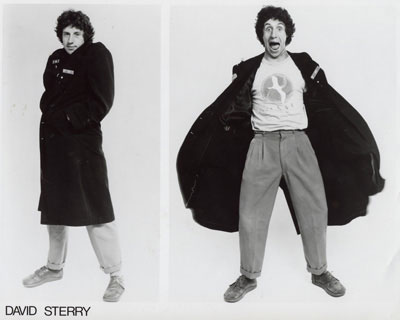
This was one of the most fun interviews I’ve ever done, thanks to Julie Green.
Calling Lake Placid authors: come pitch your book to the Book Doctors this Saturday @ The Bookstore Plus http://www.thebookstoreplus.com/event/pitchapalooza
Vermont writers: come pitch your books to the Book Doctors this Sunday @ Flying Pig Bookstore http://site.booksite.com/7087/events/?&list=EVC1&group=current&preview=1
This is a fantastic success story. When we went to do our Pitchapalooza at Rainy Day Books in Kansas City, little did we know that our winner would end up with a three book deal with Farrar Strauss Children’s. But Genn Albin’s truly awesome pitch for her dystopian novel Crewel just blew us away. Here’s the first of three pieces she has written for us about how the whole thing came down. Thank you, Genn, you are truly an inspiration. And we’ll be watching and reading about your journey from talented amateur to (knock wood) best-selling author.
In January I decided I needed to be more involved with the Kansas City book scene, and if you want to be more involved with the Kansas City book scene, you look to Rainy Day Books. Now at the time I had a finished first draft of my novel, but my days were spent at home with two toddlers, which meant I didn’t have a lot of time or money. So when I saw the Book Doctors were scheduled to bring an event called Pitchapalooza to Kansas City on Rainy Day’s website, I took a deep breath, picked up the phone, and made a reservation for two to the event. Thankfully, the event was free, but if you bought their book, you would receive a free phone consultation, and since money was tight, this sounded like a lot of bang for my buck. I messaged my local critique partner and told her we were going.
I spent the next few weeks devouring every blog post on the Book Doctors’ website and every news article written about the event. I suppose it stems from my background in academics that I like to research. Well, maybe I don’t like it so much as I can’t escape it.
And then the unthinkable happen — a stupid ice storm. Kansas City weather is fickle at best, and I remember worrying that I would not be able to drive down in the ice. My valiant husband, and number one supporter, promised he would drive me if I was worried about the roads. In all fairness, they were bad, but I never considered that flights might be cancelled. The morning of the event, I got a phone call letting me know Pitchapalooza was being rescheduled. I was heartbroken.
I watched the Rainy Day website for the rescheduled time, crossing my fingers that it would still happen, and reserved my spot as soon as the date was made public. I spent the next month determined to get the book as close to a final draft as possible, so I could use my consult to discuss querying — a process that had me shaking in my boots. I put together several pitches and hated them all, and then the date of the event, I sat down and put together the final pitch. In the end, I wrote my pitch in an hour, but I used all the tips and tricks I’d learned over the past two months.
I waited impatiently for my critique partner to pick me up. My car was in the shop and I was hesitant to drive the family’s only car for an event downtown (in case my husband needed to escape with the kids). But then I got a message that she was running late and it would be another fifteen minutes. I called my husband, who was out with kids and said only car, to come back to the house. I knew if I didn’t leave in the next few minutes I would miss my chance to sign up to pitch. As it was, I thought it might be too late already. He came home, and I raced to the plaza library branch. I got there right as the event was starting, but with enough time to put my name in (thank god, I wasn’t pulled over). I missed all the rules, what the prize was, introductions, but I got my name in.
Then came the excruciating part. The contestants were drawn one at a time using the on-deck system. My critique partner showed up and succeeded in keeping me calm (aka listening to me nervously prattle under my breath), and then my name was called. I was elated and terrified and ready! The thing about pitching your book in front of hundreds of people is that you are taking an often isolating experience (writing a book) and proclaiming your ambitions to the world. It was no secret to family and friends I was writing a book, but ask anyone who is a writer and they’ll tell you that most people kind of give them an oh-isn’t-that-adorable nod when you talk about it. This felt real. I was standing up and sharing my story, for better or for worse, with a group of people who knew what I meant by “writing a book.”
My pitch was timed perfectly and I stumbled over the one line I knew I would screw up (why didn’t I change it?). And then it was my turn for feedback. Arielle proclaimed it was exactly one minute. David said my delivery was smooth, and I admitted I was trembling. I believe David’s exact words were “Fake it until you make it!”
And that was it, and I was disappointed. I wanted more feedback, more criticism. I wanted them to rip me to shreds. I whispered this to my critique partner when I got back to our seats and she gave me the standard cheerleading reply : “That’s because it was perfect.” I realized then that at some point, I’d cross the divide between someone writing a book and being a writer. Criticism no longer sent me running. I wanted to make my pitch and book better even if it was painful.
There were a lot of amazing pitches there that night. A few that made me stop and take notice. A few I couldn’t hear (word to the wise: don’t sit in the back!). And I was flabbergasted by the shear number of people there. People, who just like me, were spending their free time writing with the dream of publishing a book. I hear people say they want to write a book all the time, but this was a room of people who had done it. It was such an inspiring experience.
Then it was time for them to decide on a winner. David did his best to entertain the crowd and answer questions, but I know that for myself and 24 others in the audience all we could do was try to suppress the horrible, rolling nausea in our stomachs while they decided. Geoffrey came out and reminded us about what to do to get our books signed and set up our consultations, and I refrained from screaming, “Just get it over with before I puke!”
And then he said my name.
And my critique partner let out this blood-curdling scream.
And I almost died – from excitement, from embarrassment, from surprise.
I waited for the next forty-five minutes or so to talk to Arielle and David about my pitch. The whole experience was a blur of enthusiasm and well wishes. And then another amazing thing happened. A teen girl walked up with her mom to tell me how she wanted to read my book. Talk about awesome. A real life member of my target audience wanted to read my book! Turns out V is a writer herself and an avid reader. It took me about ten seconds to beg her to be a beta reader for CREWEL. She said yes, and I’m happy to report she’s the first teen to read it and all futures books!
Arielle and David were worth the wait. They asked some questions, we took some pics, and Arielle suggested I wait until I had a finished manuscript before we had our consult. I walked away with a renewed confidence. It was as though pure adrenaline had been injected into me. I was ready to get back to work. I couldn’t have imagined how much craziness and excitement lay before me. Pitchapalooza was only the beginning of a very wild ride.
http://www.thebookdoctors.com/pitchapalooza-winner-genn-albin-gets-6-figure-book-deal



